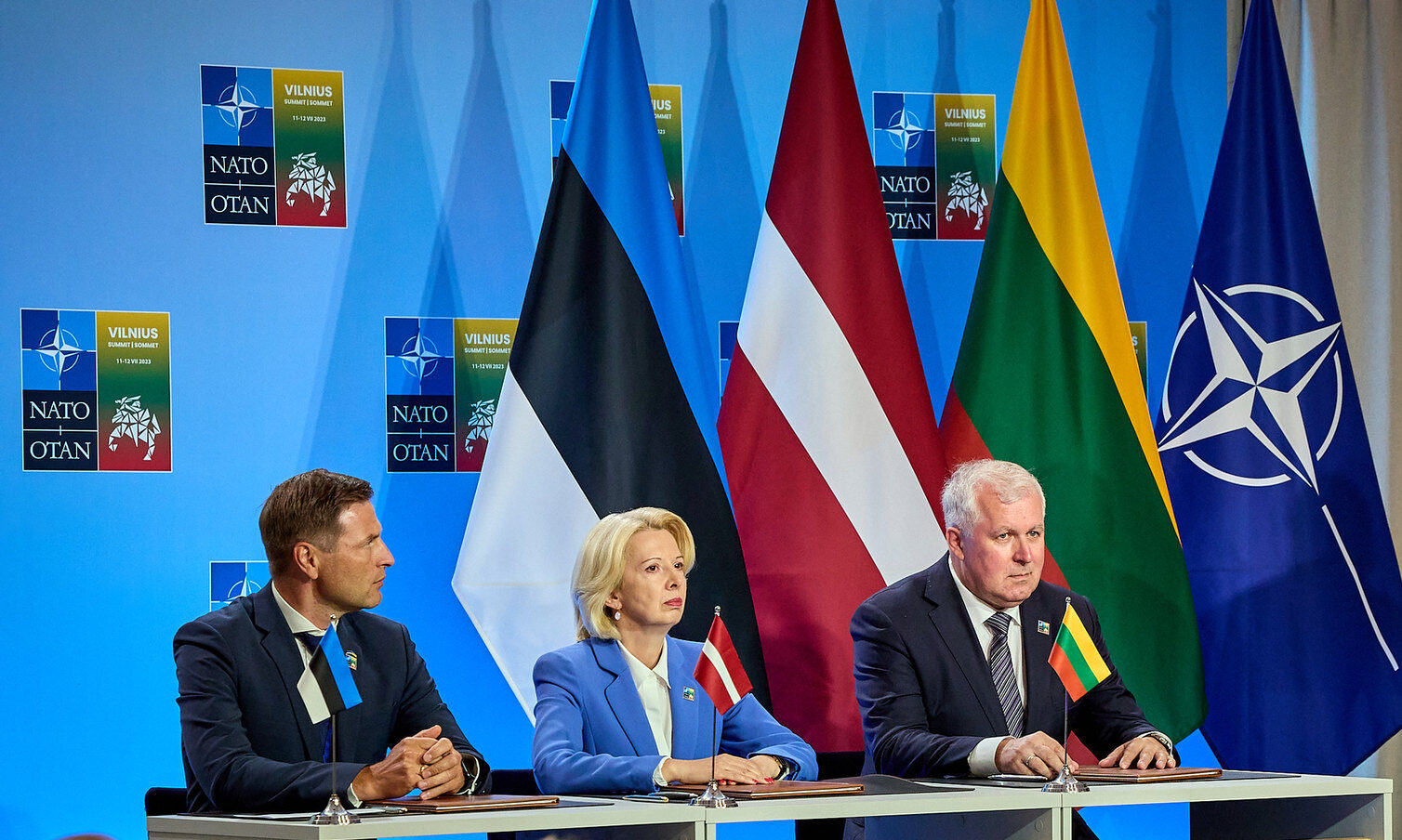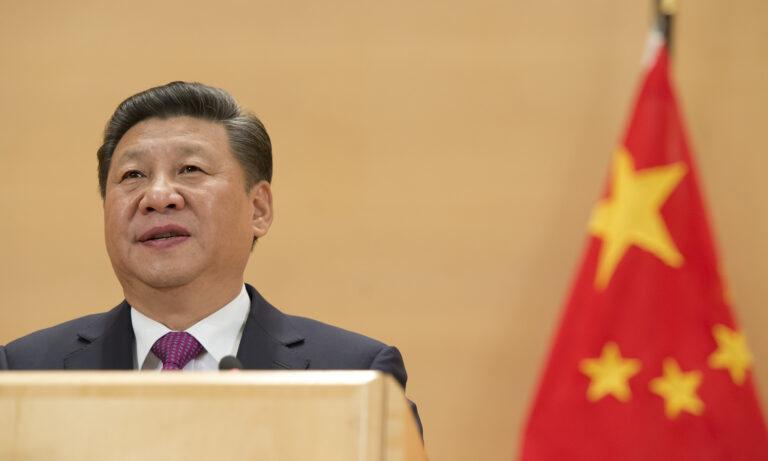
The strengthening of China-Russia relations has raised concerns in the countries over which Russia still projects its ambitions, including the Baltic states. Thus, China’s position on Russia’s invasion of Ukraine has only served as the tipping point in an already souring relationship between the Baltic states and Beijing.
“We have … certain differences of opinion. Such differences on specific questions were, are, and will be the case. If we compare this with ten fingers, then our cooperation will [account for] nine fingers, and the differences for one.”
Mao Zedong during his first talk with Nikita Khrushchev, Zhongnanhai, July 31, 1958
Both Russia and China have ventured into each other’s perceived space over centuries of mutual interactions. Still, there are no grounds to argue that China would go against Russian claims in Europe. Russian actions, including the full-scale invasion of Ukraine on February 24, 2022, minor inconveniences aside, have proven to be useful for China’s rivalry with the United States. The two countries are not allies, yet a mutually beneficial relationship has emerged with Russia as a spoiler and China as a global agenda shifter. On top of an array of other issues shared across Europe – such as unequal trade practices, economic coercion and values – it is this consideration that serves as the strongest argument limiting Baltic engagement with Beijing.
Friends Sometimes, Neighbors Always
China and Russia have a long history of relations, with the first official territorial demarcation dating back to the Treaty of Nerchinsk, signed in 1689. The length of the border has changed throughout the centuries since. Still, the need to manage relations between the neighbors has been constant. Even during the relatively short break in relations following the Sino-Soviet Split from the 1960s to the 1980s, which escalated to an undeclared military incident over Damansky (珍宝岛) island in 1969, both nations were seeking ways to engage both practically on border demarcation, and ideologically on common issues.
On the ideological front, interestingly, at the height of the spat, Beijing had noticed resistance was taking place in the Soviet-occupied Baltic states and used this to stress the supposed ideological fallacy of the Soviet Union after Stalin (“Soviet revisionist great-Russian chauvinist policy”). This became a key part of a critique of Moscow’s approach to the national question: “Struggles by national minorities against the Soviet revisionist great-Russian chauvinist policy have been more frequent in the last few years. … In Kaunas city in Lithuania, thousands took to the streets shouting the slogan “Give Lithuania freedom” … 17 veteran party members in Latvia sent long letters to people inside and outside the Soviet Union exposing the Soviet revisionists’ betrayal of Marxism-Leninism and their policy of arbitrary assimilation of the national minorities. In Tallinn, Estonia, demonstrations were held by college students.” This and other signals coming from Beijing were heralded by the Baltic overseas community as China’s support for the regaining of Baltic independence.
Vilnis Viktors Šveics, a US-based Latvian political scientist, wrote in 1978 that “One of the most spectacular developments concerning the Baltic states in the last ten years is the interest of the People’s Republic of China in the fate of the Estonians, Latvians and Lithuanians. This is a new and significant trend. For the first time in history, a country situated in Eastern Asia shows consistent concern for the situation and events in the Baltic area.”
Any expectations, however, were soon dashed. No serious support was to come from Beijing. First of all, this was because it would mean an escalation in the conflict with the Soviet Union, which China could not afford, and second, because Beijing, hardly a self-determination champion at home, did not really care. China’s mentions of the Baltic states were merely a rhetorical weapon in the stand-off with Moscow.
During a dozen rounds of consultations throughout the 1980s, many inconvenient truths were communicated by the Chinese to the Soviet side, including Deng Xiaoping’s history lesson that Mikhail Gorbachev had to sit through during a meeting on May 16, 1989: “The countries that took greatest advantage of China were Japan and tsarist Russia … and at certain times and concerning certain questions, the Soviet Union.”
However, the time had come to put the conflicts to rest and build a normalized relationship. Deng Xiaoping, in his signature pragmatic style, was even ready to yield some ideological ground. He admitted to a certain dogmatic over-zealousness on the Chinese side, identifying the root of the issue as a lack of respect instead, which, unlike ideological conflicts, could be easily solved: “I should say that starting from the mid-1960s, our relations deteriorated to the point where they were practically broken off. I do not mean it was because of the ideological disputes; we no longer think that everything we said at that time was right. The basic problem was that the Chinese were not treated as equals and felt humiliated. However, we have never forgotten that in the period of our First Five-Year Plan, the Soviet Union helped us lay an industrial foundation.” The “one finger” of differences was still there but Deng had decided to focus on the “nine fingers” of cooperation. The message was that we have had some good times, followed by some bad times. Let us see where we can go from here.
Gorbachev had no issues with Deng’s framing. Relations were headed for improvement, yet the collapse of the Soviet Union just two years later, in 1991, meant that the framework of engagement had to be renegotiated yet again. Moreover, for Beijing, it also now showed the need to craft an approach to bilateral relationships with 15 sovereign countries that (re-)emerged after the fall of the Soviet regime.
The Baltic Factor
The window of opportunity in the 1990s allowed China to explore relations with the newly re-established Baltic states without upsetting Russia. China was quick to adapt to the new reality. It was among the first countries to recognize the restoration of the independence of Estonia, Latvia and Lithuania in 1991 and establish diplomatic relations with the Baltic states. This speaks to a constant principle in Beijing’s foreign policy approach that also appeared at later stages, including the beginning of China’s cooperation framework with Central and Eastern European countries (“16+1”) in 2012, and something we are witnessing vis-à-vis Ukraine today. China is interested in developing friendly engagement with smaller countries, as long as it can avoid stepping on a bigger partner’s toes in the process.
In the 1990s, after the collapse of the Soviet Union, Russia and China picked up the pace in their relations. Both countries were looking for new partners and opportunities, and they found them in each other. Russian leaders such as Yevgeny Primakov paid significant attention to Russia’s relationship with Asian states and underscored the significance of the link with Beijing: “[The China-Russia relations] are based on a solid political and even, I would say, strategic foundation. Both states realize that they need to be together.”
In the years that followed, the two countries have signed several cooperation agreements, including a “no limits” partnership in February 2022. Although not bound by an alliance, the countries have nonetheless found in each other a visionary partner in countering the influence of the United States and other Western countries. Both engage in a mutually beneficial relationship in which Russia acts as a spoiler and China emerges as a global agenda shifter.
Clearly, Russia’s full-scale attack on Ukraine appeared to be a stress test for the Sino-Ukrainian relationship, given Kyiv’s strategic partnership with Beijing. After all, the “Joint Declaration on Establishment and Development of Strategic Partnership Relations” between Ukraine and the People’s Republic of China was signed in 2011 and strengthened in 2013.
However, and perhaps not duly factored in by Beijing, it was also a stress test for China’s relationships with other countries that had shared some form of unwanted socialist history with Ukraine, including the Baltic states. While China has expressed support for Ukraine’s territorial integrity and a peaceful resolution to the conflict, it has refrained from condemning Russia outright. China has refused to condemn Russia’s actions and it has criticized the sanctions imposed by the West – to which the Baltic states are now an integral part. This has led to speculation that China may be willing to provide economic or military assistance to Russia. One and a half years after the beginning of the invasion, it is this consideration that serves as the strongest argument limiting Baltic engagement with Beijing. This is on top of an array of other issues shared across Europe, such as unequal trade practices, economic coercion and values.
China’s Stance on Ukraine is Crucial for Sino-Baltic Relations
The strengthening of China-Russia relations has raised concerns in the countries over which Russia still projects its ambitions, including the Baltic states. After all, being NATO members with a shared border with Russia, the three countries had always been sensitive to all manifestations of alternative blocs that included Moscow. Still, up to the invasion, the argument of China and Russia being fair-weather friends prevailed in public opinion. Baltic grievances concerning Beijing had more to do with unfulfilled economic expectations, economic coercion and China’s human rights record.
Given China’s history of unease over imperial Russia’s land grabs and Soviet activities in China’s vicinity, including in Vietnam and Cambodia, one would think that Moscow’s launching of a full-scale war on Ukraine would not be met with support in Beijing. Yet, after weighing up the pros and cons of the Russian attack, Beijing’s actions and statements show that China views Russia’s war as an opportunity to challenge the US-led global security architecture. Of course, China considers this to be in direct conflict with its interests.
Therefore, it can be argued that China’s position on Russia’s invasion, described by analysts as tacit support or pro-Russian neutrality, has served as a tipping point in an already souring relationship between the Baltic states and Beijing. The first Baltic country with an Indo-Pacific strategy, Lithuania, draws a causal link between China’s position and the state of democratic countries’ views of China today: “Beijing’s warming relationship with Moscow, illustrated by China’s stance regarding Russia’s aggression against Ukraine, is fueling tensions between China and democratic states.” The Baltic states are worried that China’s support for Russia could embolden the Kremlin to take further action against its neighbors.
Going back to Mao Zedong’s metaphor on the ten fingers of Sino-Russian cooperation, Moscow’s invasion of Ukraine and appetite for what are seen as Russian and Soviet historic territories do not seem to fall under the one finger of differences. For the countries in the immediate region, including the Baltic states, this factor adds one more reason to exercise restraint in relations with Beijing.
This article was originally published by New Eastern Europe and is republished here with permission.
Written by
Una Aleksandra Bērziņa-Čerenkova
UCerenkovaDr. Una Aleksandra Bērziņa-Čerenkova is a Research Fellow at CHOICE and Head of the Political Science PhD programme and China Studies Centre at Riga Stradins University, Head of the Asia Programme at the Latvian Institute of International Affairs, a member of CHERN and European Think-tank Network on China (ETNC).


